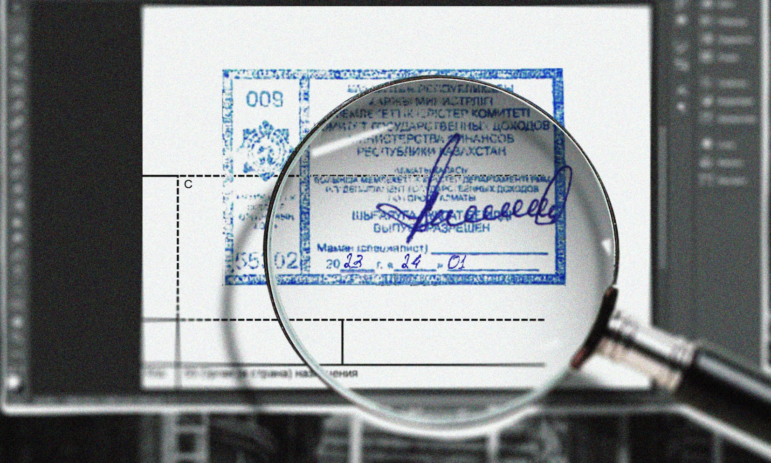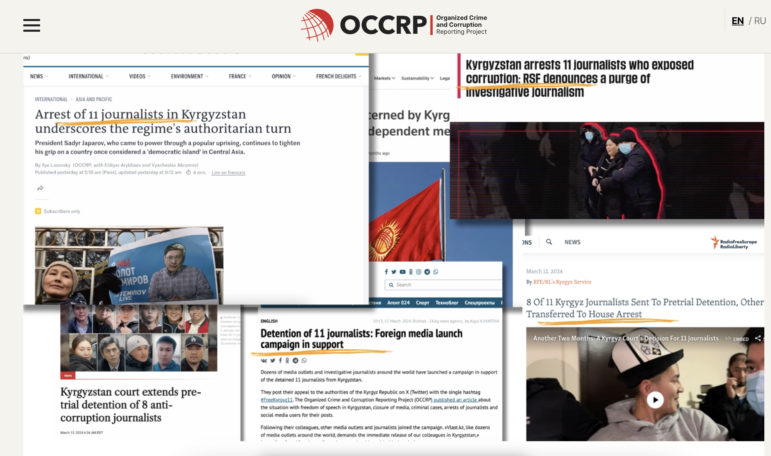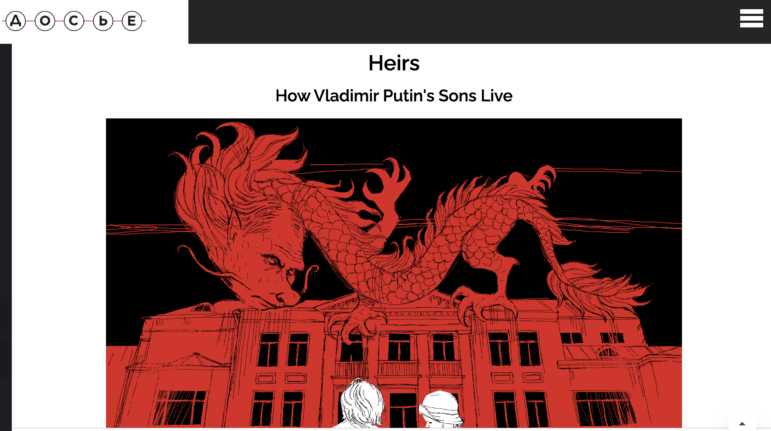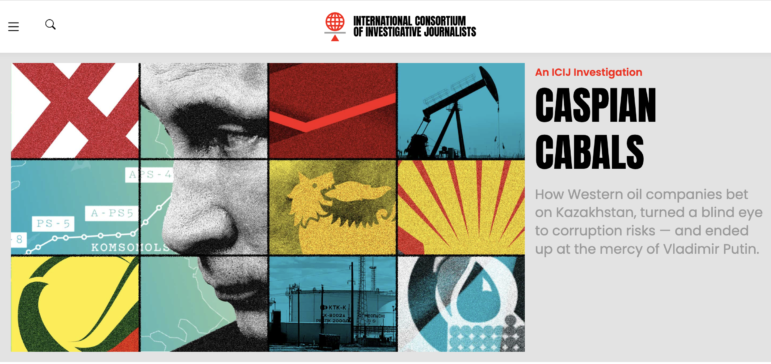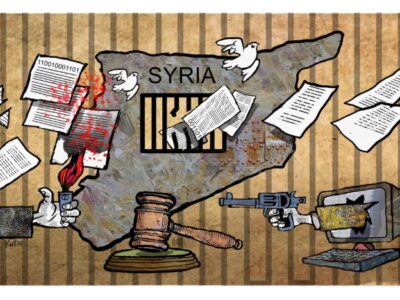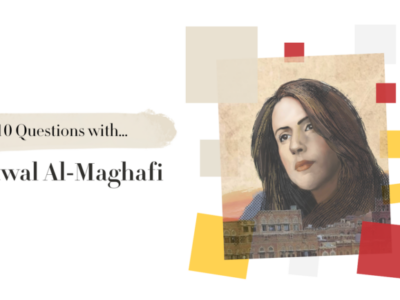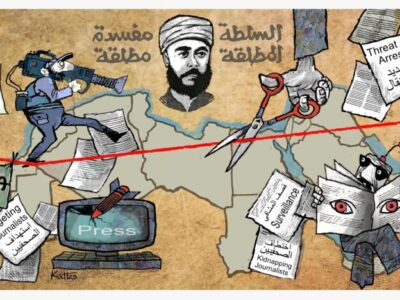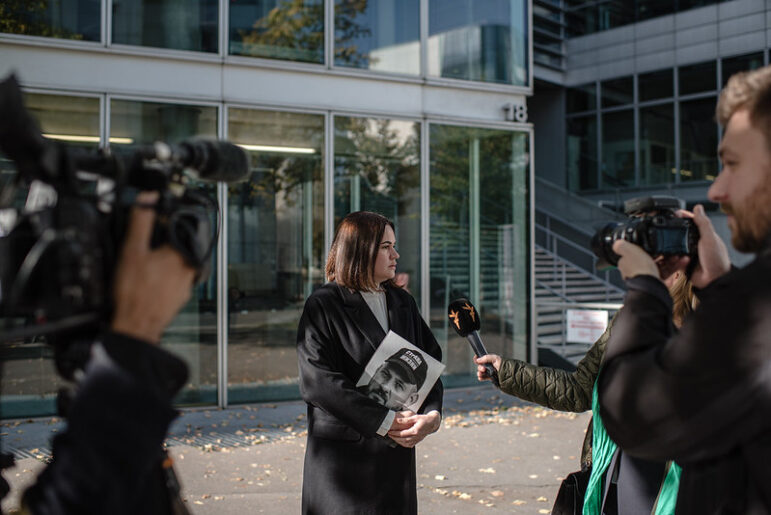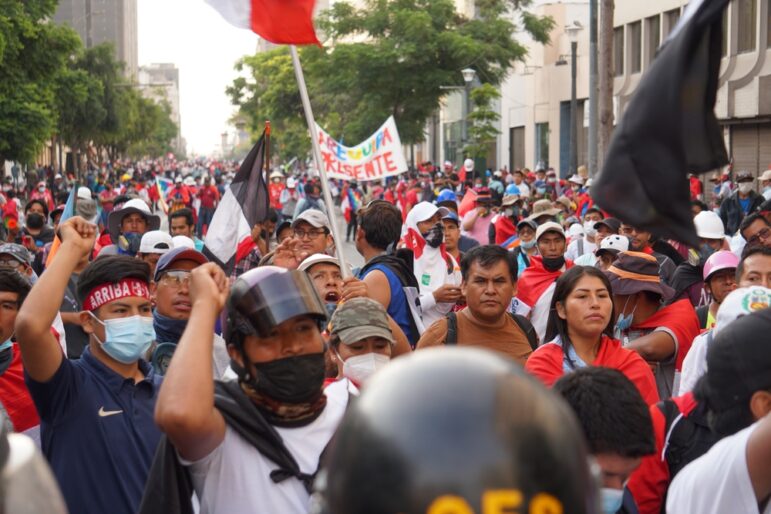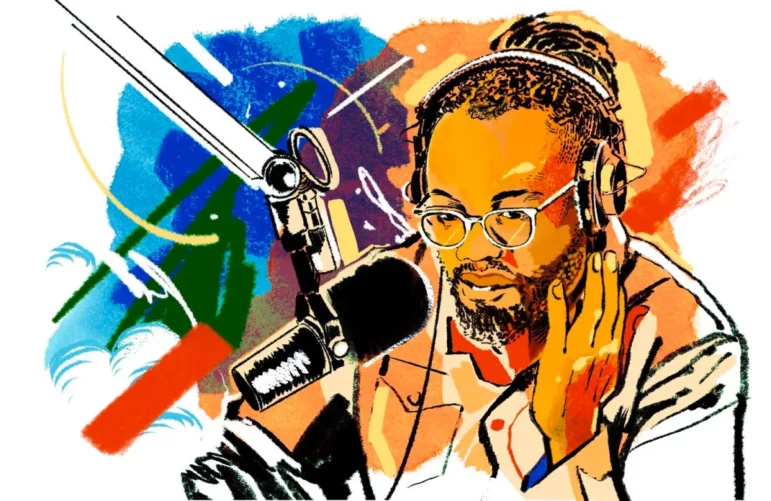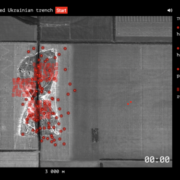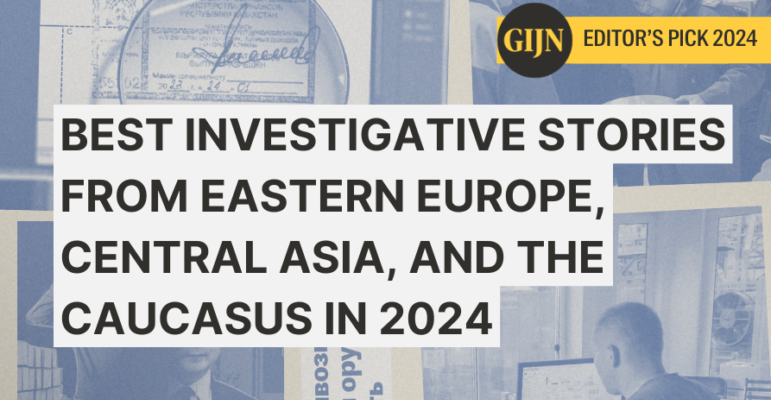
This year has been extremely tough for journalists in the region and across Russia and parts of Eastern Europe, Central Asia, and the Caucasus, as the climate for investigative journalism is deteriorating.
The war in Ukraine has influenced the whole region and had a significant impact on the lives of those attempting to report on the conflict. Recent reports suggest roughly one million people have been killed since the beginning of Russia’s full-scale invasion of Ukraine, at least 107 of them were current or former media workers.
In Russia itself, attacks on the independent media grow even more widespread. Foreign journalists have been forced to stand trial, while the Committee to Protect Journalists warned this year that independent reporting is under so much pressure that it “hangs on by a thread.”
Key standouts this year were outlets publishing stories on the war in Ukraine, with critical reporting often dubbed as “fake” by a Russian government that criminalizes journalists even for using the term “war” in relation to the conflict. Critical voices have been silenced with mass arrests and raids, the publication of government wanted lists, arrest warrants, and jail terms in absentia. That has forced more Russian reporters to flee the country and work in exile in Europe, but even there they do not feel safe. Those remaining have been forced to report using government-approved messaging, to work in secret, or to change profession.
There has also been a renewed crackdown on press freedom in the Caucasus. Despite mass protests in Georgia, lawmakers voted for a controversial “foreign agents” law, based on the Russian model, which civil society and media organizations fear could be used to muzzle them.
And in Azerbaijan, more than a dozen journalists have been arrested on charges of currency smuggling for allegedly illegally receiving money — money that was, in fact, grant funding for journalism from respected international donors.
Kyrgyzstan, which used to be a stronghold of investigative journalism in Central Asia, also increased its repression of journalists. After an investigation into potential corruption in the Presidential Administrative Directorate was published, reporters from Temirov Live were arrested, with some of the team jailed and charged with “creating a criminal group” and “inciting mass unrest.” The Kyrgyz court also ordered the investigative media outlet Kloop, a Kyrgyz member of GIJN, to close, but despite the ban, the journalists have not stopped their work. Kloop’s data department studied criminal cases from 2020 to 2024 and reported that, according to their calculations, 140 people, including 21 journalists, have ended up behind bars for political crimes during the four years of the current president of Kyrgyzstan.
Even amid this unprecedented pressure, investigative journalists have not given up. To reduce the risks to their life and freedom, regional reporters are increasingly joining cross-border partnerships to make their work safer and more effective.
How Sanctioned Belarusian Timber Makes its Way to the EU
The Belarusian Investigative Center, in partnership with the Polish media outlet Gazeta Wyborcza, and Schemes — the investigative program of the Ukrainian service of RFE/RL — dug into a sharp increase in timber exports from Central Asia to Europe. The journalists noticed that timber from Kazakhstan – a country known more for its plains than its woodland – grew from almost zero to €126 million (US$135 million), according to Eurostat data. The team analyzed more than 40 timber supply contracts, along with customs declarations and invoices. It reported concerns that Belarusian timber — which has been subject to sanctions since March 2022 — could have been imported to Poland and other EU countries disguised as timber from Kazakhstan. The team received expert advice that suggested some of the seals and signatures on official documents may have been forged or even digitally cut and pasted using Photoshop. Following the publication, several European governmental agencies began their own investigations.
How Russia Imports Machinery for Arms Production from the West
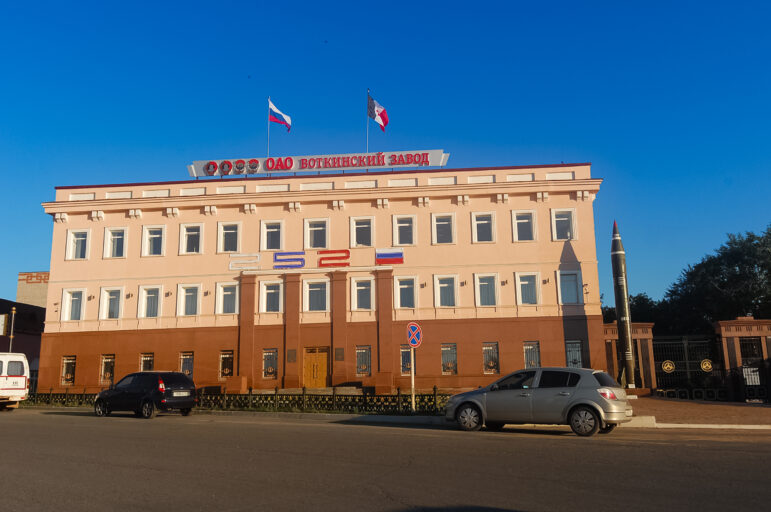
Votkinsk Machine Building Plant in Udmurt Republic, Russia. Image: Shutterstock
The exiled Russian online media outlet Important Stories — or IStories — dug into the supply chains and manufacturers that help Russia produce ballistic, cruise, anti-ship, and anti-aircraft missiles.
After analyzing an in-depth report on missiles being made in Russia and customs databases, journalists reported that more than six billion rubles — around US$60 million — worth of machinery and parts had been imported into Russia in 2023. Moreover, according to IStories, the senders include not only China, Turkey, the UAE, Central Asia, and South Korea, but also European countries that were supposedly banned from trading with Russia. “No matter how confusing the system of sanctions is, it is clear that these [European] countries should not supply the Russian military industry with machines to make missiles on these machines,” the reporters noted.
Sometimes military materiel machines include a built-in GPS system that lets the manufacturer know when and where their products are activated, but, according to journalists, this function can be bypassed. Moreover, having interviewed manufacturers, exporters, and suppliers of equipment, the journalists concluded that some participants in the supply chain were likely aware that their goods were going to sanctioned weapon enterprises in Russia, but turned a blind eye to it. (Others said any such trade was a “mistake or direct deception,” i.e., they sold their equipment to Turkey but it somehow ended up in Russia).
All the President’s Men: State Projects Handed to Apparent Proxies in Kyrgyzstan
After a slew of journalist arrests and media outlet shutdowns in Kyrgyzstan, a team of reporters got together to continue the work of those who had been silenced. The project — named Uncensored: The Kyrgyzstan Project — is a collaboration between reporters from the OCCRP, Kloop, Vlast, and Temirov Live. The joint investigation dug into 11 major state construction projects, including an airport, a presidential palace, and a railroad, to find out who is behind the contracts. The total cost of just six of these projects was estimated by journalists at over US$137 million. The reporting team uncovered a complex network of companies and proxies, but found evidence to suggest that at least five of the companies that received lucrative state contracts “have owners or directors with ties to” the country’s president or the head of the Presidential Administrative Directorate. Among the characters behind some of the contracts, according to the investigation, is a 24-year-old Kyrgyz rapper who is known as a friend of the president’s son.
Since access to official data on governmental contracts is severely limited under the current regime, the investigation relied on verified data from interviews with insiders, state television reports, the GetContact app, incorporation documents, land records, and social media posts published by people who own, manage, or work for the companies involved. The head of the presidential administration’s information policy service said in an interview with Azattyk that the investigation was prepared for the purpose of “denigration” while the President of Kyrgyzstan told the governmental channel Kabar that “major construction projects are open to all comers.”
Private Resort on Georgia’s Budget
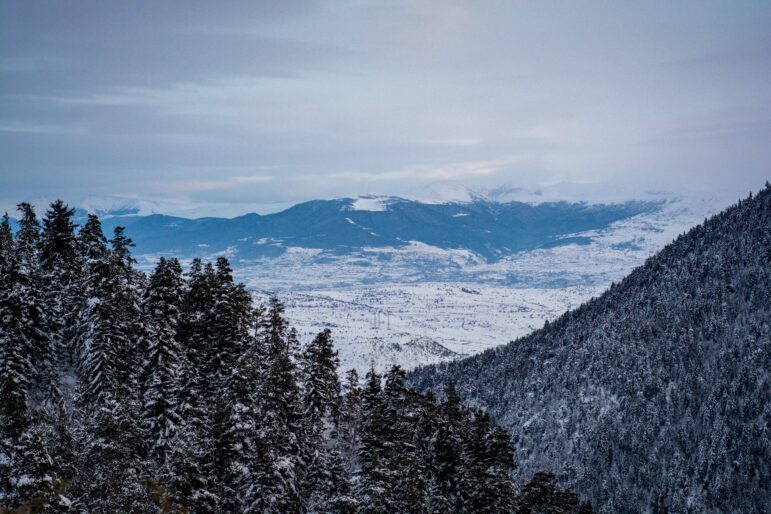
The Georgian mountain resort town of Abastumani. Image: Shutterstock
Abastumani is a mountainous spa town once favored by a Russian emperor and “nestled in the pine forest of southern Georgia.” According to this report by the Georgian investigative outlet iFact, the resort is a favored residence of a former prime minister — and now billionaire businessman — who arrives by helicopter and whose home is surrounded by a fake cliff worthy of a James Bond film. Using information from the National Agency of State Property, Panama Papers data, and independent expert assessments, the authors of this report delved into a network of companies linked to the former premier that allegedly bought land and buildings previously owned by the state at low prices. Meanwhile, according to the iFact, the state is investing millions of dollars to improve the infrastructure and facilities around the oligarch’s property. The authors said they tried to reach out to the companies connected to the former PM, but their questions were left unanswered.
Heirs: How Vladimir Putin’s Sons Live
Details about the progeny of Vladimir Putin are a tightly kept secret. While the Russian president is widely known to have two older daughters, he is also, according to this report from The Dossier Center, the father of two male children. This report attempts to shed light on their lives — surely Russia’s most secret minors — and to detail who pays for their life of luxury. According to this Dossier Center investigation, the boys live in isolated residences, always accompanied by nannies, tutors, and professional trainers, and are kept safe by federal security guards. The report claims the children travel on yachts and business jets, with their needs allegedly paid for by the Russian leader’s friends and funded from the Russian budget. Based on an interview with an insider, Dossier Center reported that boys hardly communicate with their peers and spend limited time with their parents. In their documentary (with English subtitles), Dossier Center journalists said that the investigation took months, as they analyzed thousands of pages of bank transfers, information on hundreds of flights, internal documents from hundreds of legal entities, and records on dozens of planes, helicopters, and yachts.
How a Latvian Citizen Helps Russia Sell Oil
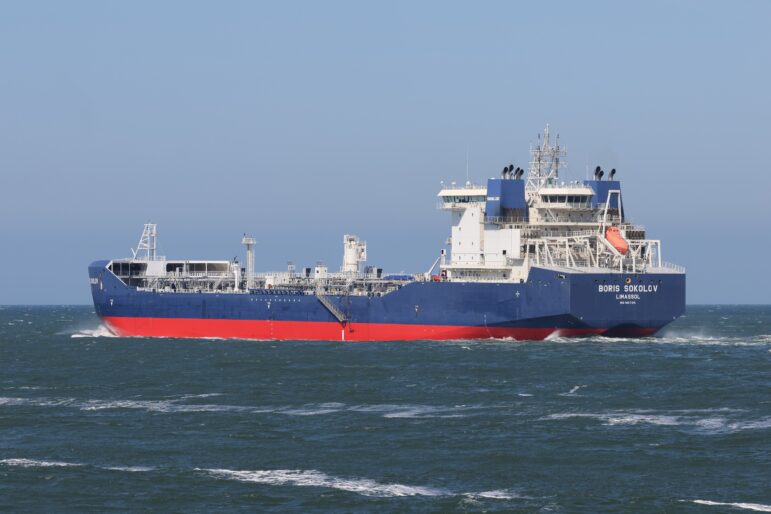
The crude oil tanker Boris Sokolov. Image: Shutterstock
After Russia invaded Ukraine, Western governments introduced a price cap for Russian oil: a measure designed to rein in the Kremlin’s “principal profit source” for financing the war. But according to this investigation by The Insider, Moscow is continuing to receive significant petro-money by the use of a “shadow fleet” to evade sanctions. According to the report, this clandestine Russian tanker fleet includes about 600 ships and transports about 1.7 million barrels of oil per day. Journalists from The Insider claim that one of the “major players” in this scheme is a Latvian citizen, who they investigated by analyzing LinkedIn accounts, Cyprus business registers and newspapers, shipping traffic data, as well as information from the ImportGenius and ExportGenius databases. The reporters linked him to companies trading in oil, and with tankers of the shadow fleet that seem to be constantly sailing between Russia and ports in India and China, transporting Russian oil that sells for prices higher than the cap allows. (In response, the Latvian businessman in question told reporters he carries out “all my actions within the framework of international law, including compliance with sanctions.”)
For a video investigation on the same topic — this time using drones for documentary evidence — see the piece by Ukrainska Pravda’s chief investigative reporter Mykhailo Tkach.
In the Service fo Moscow: ‘Apples’ for Protests and Votes in Moldova
A journalist from Ziarul de Gardă (ZdG) worked undercover for three months to uncover how people were being recruited for money by pro-Kremlin forces in an attempt to influence the results of a referendum on Moldova’s European integration. The reporter described how, together with other “activists,” she participated in protests and meetings with candidates, handing out leaflets with fake information about the European Union and the Eurasian Economic Union. Filming with a hidden camera, the undercover journalist was reportedly paid for these activities in Russian rubles and transferred to an account opened for her at a Russian bank. In the documentary (with English subtitles), she showed how the money (in activist’s slang “apples”) circulated inside the protesters-for-hire network, and how people were recruited to participate in rallies to support Russia’s preferred policies. ZdG reported that the network continued operating even after the police and prosecutor’s office publicly denounced the network — said to be made up of 130,000 citizens who had been “bribed” — and which police said had been set up with the “aim of disrupting the electoral process in Moldova.”
How Russian Officials Whitewash their Reputations
According to this investigation by Proekt, there is a bustling trade in image washing taking place by the powerful in Russia, where officials and business people are hiring PR specialists and filing lawsuits in order to remove not only originals but also unflattering copies of articles, from the internet. Reporters analyzed more than 1,600 requests in the Lumen database for the removal of materials from Google, Facebook, and YouTube, as well as Russian court decisions.
Among the stories that those in power tried to remove from search results were investigations into sanctions evasion and illegal enrichment, articles about real estate registered to love interests, and stories detailing connections to the mafia. Proekt’s investigators analyzed the results relating to various search engines and noted that large digital platforms apparently most often approach such complaints formally and remove high-quality and important investigative reports to satisfy such requests.
Oil Giants Ignored Red Flags, Enriched Elite for Kazakhstan Pipe Dream
This investigation, a late addition to our list and part of the Caspian Cabals project from the International Consortium of Investigative Journalists (ICIJ) and 26 media partners, including reporters from Vlast, Proekt, and OCCRP. For two years, this group of reporters dug into a critical pipeline in the Caspian Sea region and their subsequent report is based on thousands of confidential emails, oil industry records, audits, and court documents, as well as hundreds of interviews, including with former company employees and insiders. The investigation uncovered how Western oil giants, in pursuit of bumper profits, have invested in developing oil fields in Kazakhstan, turning a blind eye to the potential environmental and health risks to local communities. Reporters called it a “costly project littered with questionable payments, potential conflicts of interest, and offshore companies that obscured the owners’ identities.” They also found evidence of significant payments made to companies tied to the son-in-law of the then-president of Kazakhstan. In response, a spokesperson for one of the Western firms named in the piece said that the company has robust compliance procedures and is “committed to ethical business practices.”

